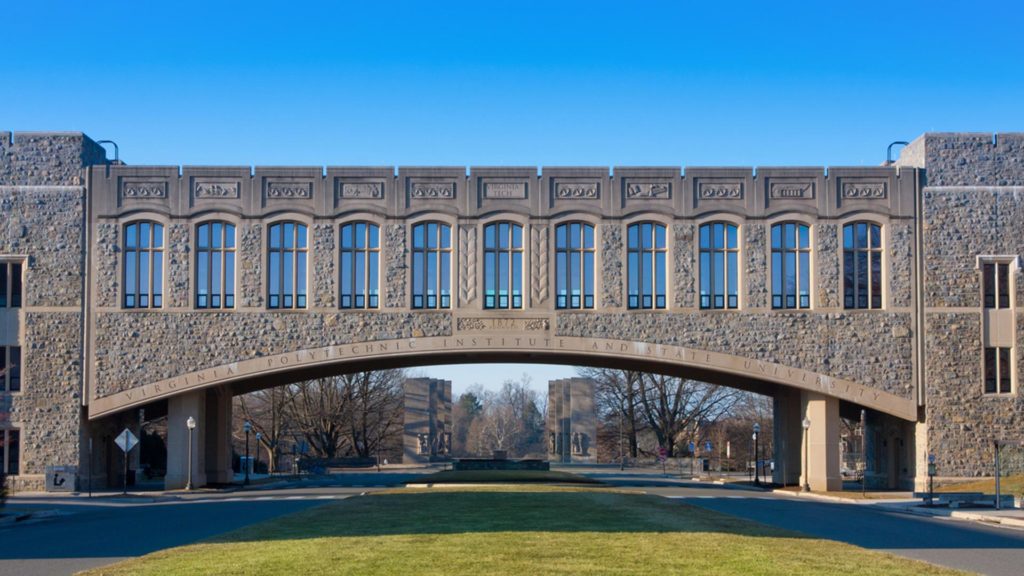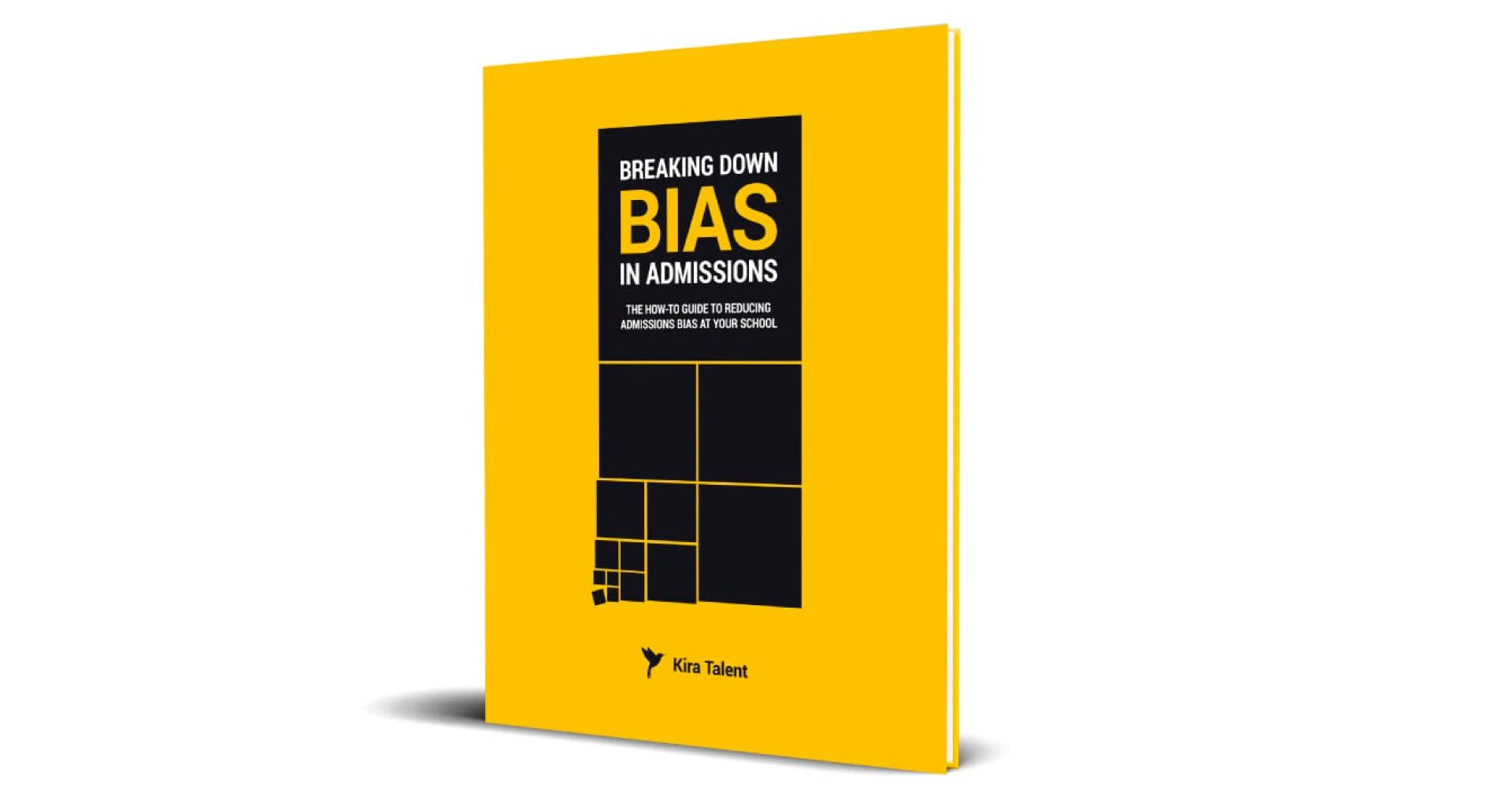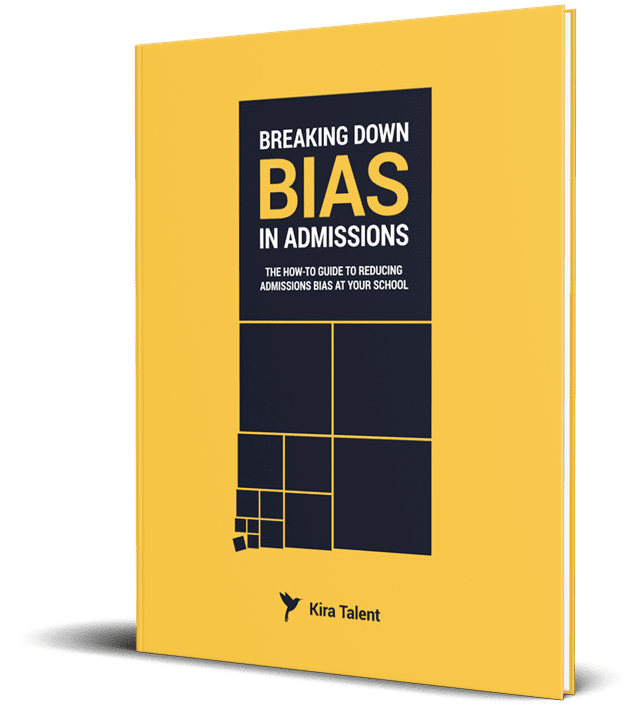Your admissions process reflects your school as a whole: It’s the “first date” of your life-long relationship with your students.
Yes: External factors like campus controversies or sports team performance can impact both reputation and applicant interest.
For example, The Economist reports that schools whose teams have made the “Final Four” in the NCAA Basketball tournament see a 5.8 percent increase in applications. Colleges whose teams won the tournament had applications increase by more than 10 percent.
Having more applicants doesn’t mean more students. In many cases, the recruitment and admissions process of applying to your program is their genuine first impression of future interactions with your school.
And it can make or break their interest - no matter how well your basketball team does.
Having more applicants to choose from doesn’t mean more applicants will choose you. So how do you make your admissions experience best reflect your school?
One way is to go back to your mission.
The most successful schools approach changes in admissions as more than an enrollment project: They view it as an important institutional change.
Here’s how three schools transformed their admissions processes in order to better reflect their mission and their core values:
St.Gallen University Strategy and International Management

St.Gallen University’s Strategy and International Management (SIM) is consistently one of the top-ranked international business programs in the world.
Success in rankings was not core to their mission, however continuing to build and maintain their program’s community spirit matters greatly.
“Assessing applicants with documents became a paradox compared to what we were looking for in applicants,” Nathalie Naveda, the program’s Admissions Managers, told us in an interview last fall.
“If we can teach it, then students can learn it, but we need to know students have that ability to master it,” she added. “We needed to contextualize everything that came on paper and create a personal connection.”
The SIM directorship and program management team knew the types of students they wanted to enroll, so they decided to take ownership of their assessment and build a holistic application to find the best candidates in their applicant pool.
Now, they get more touch points with students and more opportunities to get to know them and how they may contribute to the campus community.
One of the results that Naveda is most excited about is the ability to give applicant feedback on their applications.
“This year, we were able to give relevant feedback to most candidates, aimed at their own growth and development, which is pretty much in line with the values our program stands for,” she said. “It became a more meaningful process and it felt like everybody had a chance.”
At St.Gallen, students are getting a far more personalized and customized experience.
Like any major decision in academia, your whole school has to get behind the idea and the reason for the change.
Harvard Law School

In 2017, when Harvard Law School decided to expand their standardized testing requirement beyond the LSAT to include the GRE, it was not one person’s decision. It was a strategy to improve diversity shared by the entire law school.
Now, prospective students would not need to sit for a very specific standardized test (the LSAT) and could write the far more common GRE.
Given potential law students may have already started or completed graduate degrees elsewhere, this move expanded the potential applicant pool significantly and increased the potential for students to consider law who were otherwise applying to other graduate programs.
The change is not only helping bring in a more diverse student body, but it makes a statement about the school’s priorities.
“The shift represents another step in a number of initiatives to increase access to a legal education. For example, we would love to increase the applicants with STEM backgrounds entering law. Putting people through another standardized test [the LSAT] seems arbitrary,” said Jessica Soban, Harvard Law’s Associate Dean for Strategic Initiatives and Admissions, in an interview last year.
“What is the principle stance that you’re trying to have for any process at your school? Your admissions process should reflect that to the world,” Soban added.
Virginia Tech University Graduate School

At Virginia Tech Graduate School, their InclusiveVT initiative is an institution-wide commitment that has set goals in the university’s strategic plan for increasing the enrollment of minority and historically underserved students.
To achieve these targets, the graduate school has rolled out a holistic admissions process designed to screen high-potential but lower-scoring students into the consideration pool. Graduate School Dean Karen DePauw personally met with faculty within each of the graduate schools (which collectively host 150 unique programs) to discuss the initiative and collect feedback.
DePauw and her team used the feedback to create guidelines that were flexible enough for each unique program to adapt to their needs, but structured enough to ensure consistency across the school.
Instead of ruling a student out based on a cut-off grade or test score, additional factors such as non-cognitive traits or references will help ensure more applicants are seen and considered by admissions decision-makers.
For students, this means they can breathe easier if they want to attend Virginia Tech but do not have the strong test scores or grades as they would have needed historically.
While the new process has not been in place for long, the Graduate School expects the number of qualified applicants reviewed for admission to increase and, in the future, the overall diversity of their student body to increase as well.
These three schools are only a handful of the hundreds of others working to better align their processes with the change they want to make as an institution. Are you among the others? If so, share your experience and your advice with us in the comments below!
--
Interested in more content like this? Stay tuned for our new comprehensive eBook on holistic admissions coming out later this Spring!



